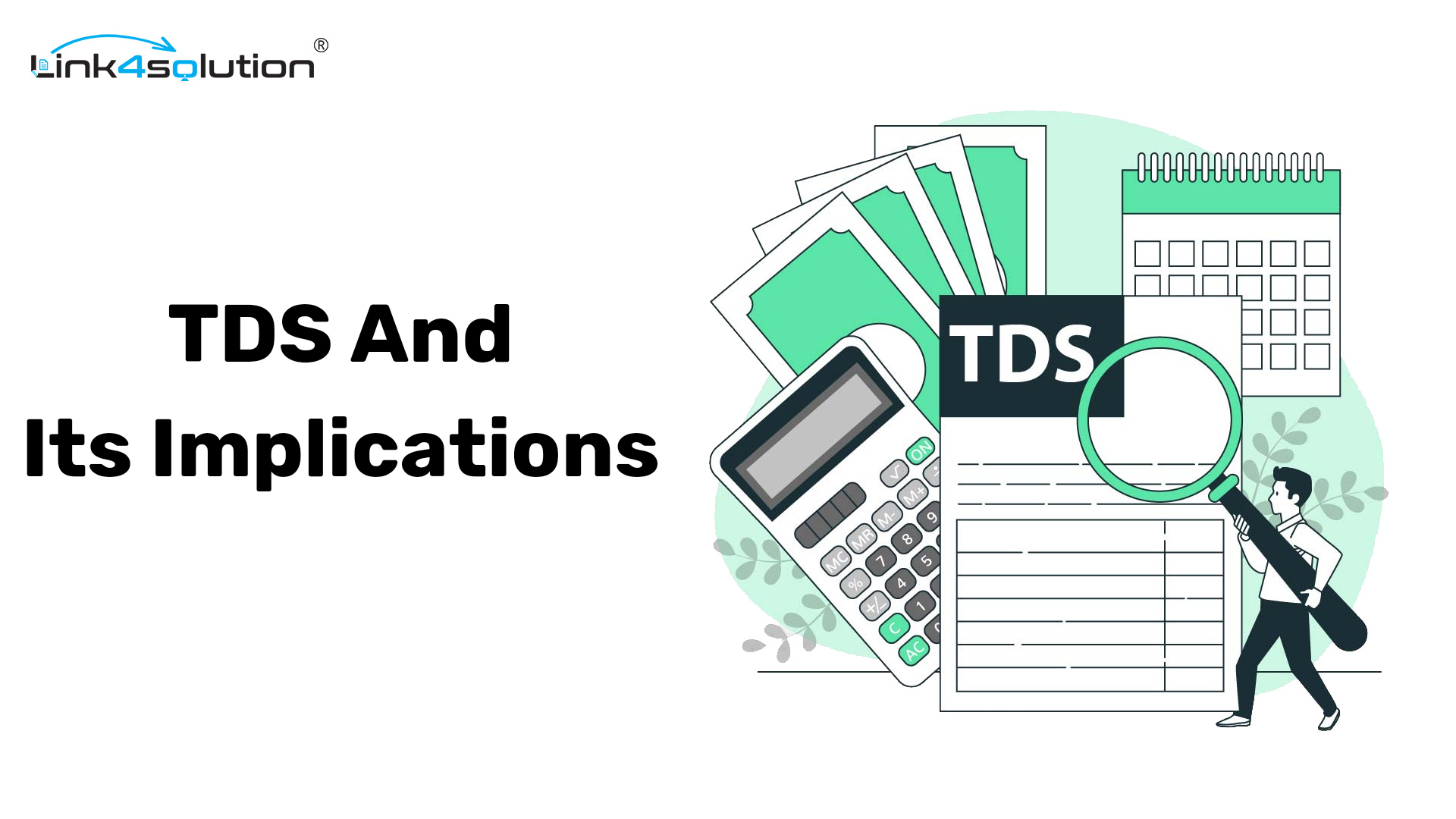When it comes to the complicated realm of taxation, a term that often arises in financial conversations is TDS—Tax Deducted at Source. It is essential for businesses, salaried individuals, and professionals in India to have a clear understanding of TDS and its implications. This knowledge is vital for efficient financial management and ensuring compliance with the law.
What is TDS?
TDS is a method implemented by the Indian government to efficiently collect income tax directly from the source of income generation. In the TDS system, the payer (such as an employer, client, or financial institution) deducts a certain percentage of the income at the time of payment. The deducted amount is subsequently deposited directly with the government on behalf of the payee, who is the recipient of the income.
The purpose of TDS is to ensure a steady flow of tax revenue for the government, rather than relying on taxpayers to pay their dues all at once at the end of the financial year. Additionally, it functions as a valuable tool in preventing tax evasion by ensuring that income is taxed in a timely manner.
How does TDS work?
Tax Deducted at Source (TDS) is applicable to a wide range of payments, such as salaries, interest on bank deposits, rent, professional fees, commissions, and other similar transactions. The deduction of TDS is determined by the type of payment and the TDS rates specified in the Income Tax Act.
For example, if you receive a paycheck, your employer has the duty to deduct TDS from your salary every month, depending on your income tax slab. In the same way, when you earn interest income from a fixed deposit, the bank will deduct TDS at a specified rate before adding the interest to your account.
It’s worth mentioning that TDS is deducted only when the payment surpasses a specific threshold limit. If the payment falls below this limit, TDS may not be applicable. In addition, individuals and entities without taxable income can request a TDS exemption certificate by submitting Form 15G or 15H to the payer.
Understanding the Impact of TDS on Individuals and Businesses
1. Consistent Adherence: – Both individuals and businesses must consistently adhere to TDS deduction and deposit requirements. It is crucial for payers to ensure accurate TDS deduction and timely deposit with the government. Not taking the necessary steps can lead to penalties and interest charges. It is crucial to have a strong accounting and compliance system in place to ensure accurate and timely fulfillment of all TDS obligations.
2. Impact on Cash Flow: Payees may experience a significant impact on their cash flow due to TDS, as a certain portion of their income is deducted at source. Nevertheless, the deducted amount will be applied to their total tax liability once they submit their income tax returns. If the total TDS surpasses their tax liability, they qualify for a refund.
3. Tax Credit and Refunds: – The TDS deducted is shown in the payee’s Form 26AS, which is a comprehensive tax statement issued by the Income Tax Department. This form provides information about the total TDS credited to the payee’s account, which can be utilized as a tax credit during the process of filing their income tax return. If the TDS deducted is higher than the actual tax liability, taxpayers have the option to claim a refund. The government will then process the refund after verifying the tax return.
4. Penalties and Interest: – Failure to comply with TDS provisions can result in significant repercussions. Failure to deduct TDS, deducting it at a lower rate, or not depositing the TDS within the prescribed time can result in the payer being held responsible for paying interest and penalties. In addition, the payer may also be subject to disallowance of certain expenses if TDS is not deducted or deposited, resulting in increased tax liabilities.
5. TDS on Salaried Employees: Typically, employers deduct TDS from the salaries of their employees, taking into account their estimated annual income. To ensure precise TDS deduction, it is important for employees to submit their investment declarations and proofs to their employers. By strategically planning and submitting these documents in a timely manner, you can avoid unnecessary TDS deductions and effectively manage your cash flow.
6. TDS and Non-Residents: – Payments made to non-residents are also subject to TDS. When faced with such situations, the payer is required to deduct TDS at the rates mentioned in the Income Tax Act or as per the Double Taxation Avoidance Agreement (DTAA) between India and the non-resident’s country of residence, whichever is more advantageous for the non-resident. Foreign individuals can potentially offset the tax deducted at source in India against their tax obligations in their home country, as long as it aligns with the regulations outlined in the Double Taxation Avoidance Agreement (DTAA).
The Significance of Precise TDS Management
Precise TDS management is crucial for both businesses and individuals. Proper TDS compliance is crucial for businesses as it helps them steer clear of legal complications and enables them to make valid deductions when filing their tax returns. Ensuring accurate TDS deductions and timely filings is crucial for individuals to correctly calculate their tax liability, avoiding any potential underpayment or overpayment of taxes.
With the advent of online platforms and tools, TDS compliance has become much more streamlined in today’s digital age. Now, businesses and individuals have the convenience of tracking their TDS deductions, depositing TDS, and filing returns electronically, which greatly enhances efficiency and reduces the risk of errors.
Conclusion
TDS plays a crucial role in the Indian tax system, ensuring that taxes are collected promptly and easing the burden of paying a large sum of taxes at the end of the financial year. Having a solid grasp on the mechanics of TDS and its consequences is essential for individuals and businesses alike, enabling them to effectively handle their finances and adhere to tax regulations.
By staying well-informed and taking a proactive approach to TDS, taxpayers can steer clear of unwarranted penalties, enhance their tax planning, and guarantee the accuracy and timeliness of their tax filings. Whether you are a business owner, a salaried employee, or a professional, understanding the intricacies of TDS will empower you to confidently navigate India’s tax landscape.




